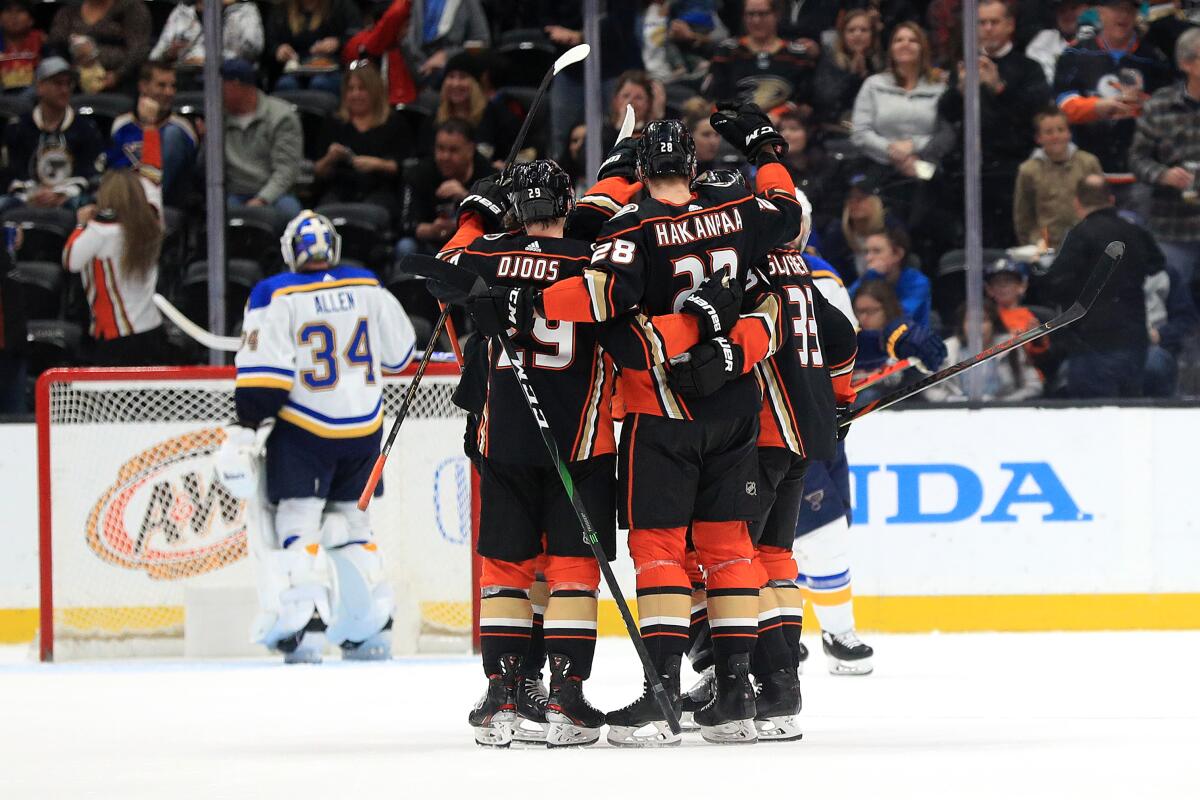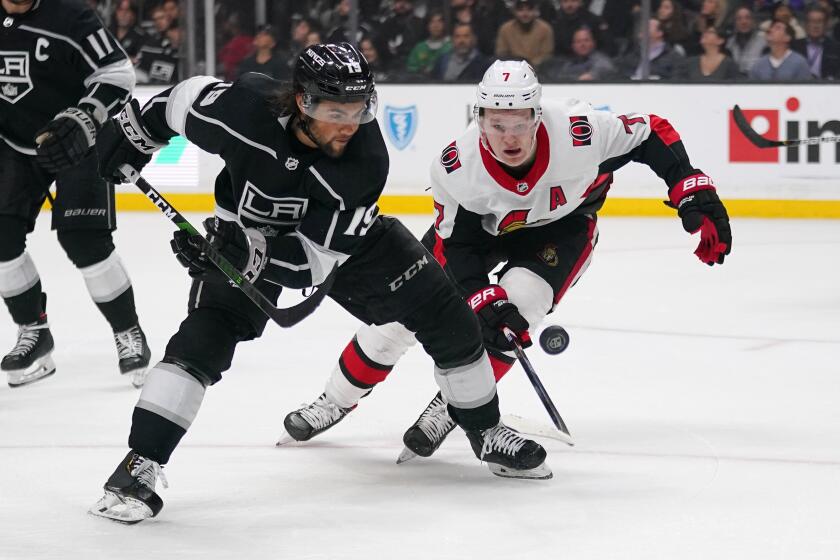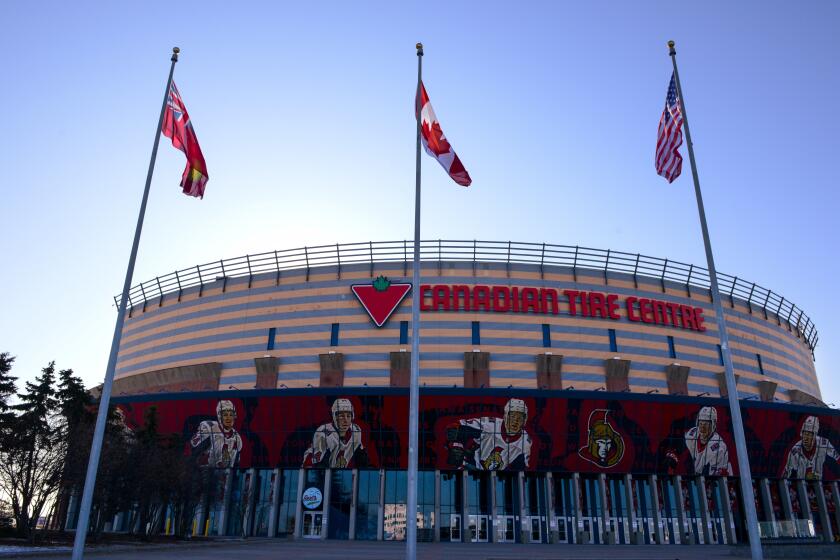Expectations for Ducks weren’t high and that’s how season has played out

- Share via
There’s no standard rubric by which to judge rebuilding seasons.
Such campaigns usually begin with limited expectations and few easily defined goals. They are used to cultivate young talent or cycle out older faces. Success or failure isn’t judged solely on wins or losses, but by other measurements of a more abstract variety. Very rarely is tangible progress clear, allowing some seasons to be considered both good and bad at the same time.
The 2019-20 Ducks — who might have already played their final game with the NHL season paused indefinitely because of the COVID-19 pandemic — are no exception.
At the suspension of play last week, the Ducks were 13th in the 15-team Western Conference with 67 points in 71 games. They finished 13th in the West last season with 80 points.
The current Ducks had a roster in transition, getting solid-yet-unspectacular production from their veterans — Adam Henrique had a team-high 43 points, Rickard Rakell and captain Ryan Getzlaf each had 42, and Jakob Silfverberg had 39 — and streaky scoring from their collection of 25-and-under players.
Kings and Ducks players have not shown any coronavirus symptoms after an Ottawa Senators player tested positive and played both teams before NHL suspended operations.
After an auspicious start that saw them win six of their first eight, nine of their first 15 and maintain a point-per-game pace through early December, the Ducks began to slide.
Around the holidays, they lost six of eight. In early January, a four-game skid all but eliminated them from the playoff race. Another four-game slide in mid-February cemented their status as trade-deadline sellers.
It was an unsurprising decline for a team that, despite having several big names and a quality goaltending tandem, was considered a dark-horse playoff contender entering the season.
By the time the season was stopped, the Ducks had already made a familiar shift in focus for the end of another rebuilding year.
They were evaluating the young talent within their system, sizing up which pieces best fit into the franchise’s future plans.
“The best way for your organization to get better is competition,” first-year coach Dallas Eakins said on March 11 after the Ducks’ 4-2 loss to St. Louis at Honda Center.
He reiterated: “We need the competition.”
And as the season wore on, there was more and more of it.
Of the 17 players aged 25 or younger who played at least one game for the Ducks this season, almost half of them recorded double-digit points, including Sam Steel (six goals, 16 assists) Troy Terry (four goals, 11 assists) and Max Jones (eight goals, four assists).
None of them, however, truly separated from the rest of the pack. Of the group, only Steel spent the entire season on the NHL roster. All the others rode the “I-5 shuttle” to the team’s minor-league affiliate in San Diego at least once.
In recent weeks, more and moreof Eakins’ postgame news conference questions revolved around players Ducks fans knew less and less about, such names as Sonny Milano (who scored twice on Feb. 25), Christian Djoos (who scored his first goal as a Duck on March 8) and Jani Hakanpaa (who scored his first career goal on March 11).
On Feb. 21, Ducks general manager Bob Murray dealt one of his under-25 forwards, Ondrej Kase, to Boston in part to free up the logjam developing in the team’s prospect pool.
Three days later, right at the trading deadline, Murray sent 24-year-old forward Nick Ritchie to the Bruins. Ritchie had 19 points in 41 games with the Ducks this season.
A player on the Ottawa Senators has tested positive for the COVID-19 virus, the club said in a statement late Tuesday, the first NHL player known to have tested positive for the virus.
“We have to maneuver things,” Murray said after the Kase trade, in which the Ducks received a first-round draft pick, prospect Axel Andersson and David Backes. In 49 games with the Ducks this season, Kase had 23 points.
“It’s not like Ondrej is old,” Murray said. “We had a few guys too many like that. I thought we were a little small. It was an opportunity to maybe change that a little bit. As we’re going, there are going to be changes and a progression as players come along. Things can change, and this was an opportunity.”
Which is probably the best way to review the 2019-20 Ducks overall, if the season is indeed done. Not as a team that was underwhelming relative to expectations, but as one that continued to transform with an eye toward the future.
More to Read
Go beyond the scoreboard
Get the latest on L.A.'s teams in the daily Sports Report newsletter.
You may occasionally receive promotional content from the Los Angeles Times.









